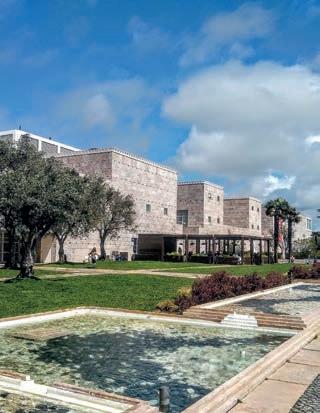
2 minute read
Relocating and Educating
Relocation & Education
WHEREVER asks Ruth E. Van Reken, co-author of Third Culture Kids: Growing Up Among Worlds about the topic on every family’s mind – choosing a school.
Advertisement
Ruth speaks internationally on issues related to global family living. She is co-founder of Families in Global Transition and a second generation Adult ThirdCulture kid (ATCK) not to mention the mother of 3ATCKs!
3. University choices
Depending on where your child chooses to go to university – will attending this school make it easier or harder for them?
8. Cost
What is the difference between local and international schools? How does each option fit your budget?
What would be your advice to parents making a move looking for a school? Do you favour the integration into a local school system or using international schools?
Making the best school choice is dependent on each person’s individual circumstances. I don’t personally believe there is a ‘one size fits all’ answer. I have seen positive results from local or international systems, as well as home schooling. Make the best decision for your particular circumstances by asking the right questions.
1. Duration
What are your long term plans? Is this a short international stint with an expected permanent return home? Are you planning on making ‘serial moves’ to various countries or is this expected to be a long term move?
2. Curriculum
How does this school system and its curriculum interface with the one in the country from which your children have come and where they may return to? How does it fit into the ‘flow’ of your overall academic plans?
4. Language
How does the language of the school mesh/ or differ from the language your child will be using at home each evening? Also, if different from home/ passport culture, how will you keep them fluent in that home language?
5. Academic standards
In some subjects there may be different emphases. Will your child be able to pursue further studies in university or other occupational training?
6. Academic style
Does it primarily teach by rote? By strong interaction with students? What is the take on homework?
7. Transition management
Is there an active transition programme to welcome new students and say farewell to departing students?
9. Specific needs
Are there particular needs your child may have physically or academically that need to be in a school’s curriculum or offerings? Perhaps you are making the move specifically because you want your children to have a true cross-cultural experience in their growing up years. You believe this will best prepare your children to function well in a globalising world. If you expect to live in this new place for just a year or two, you may feel attending a local school is your “Even when there is not a children’s greatest opportunity to learn a different language or language issue, often there be more fully immersed in are cultural differences another culture. Maybe you may plan to be in this new place that can create unexpected for many years and want your children to become more challenges for children.” aligned with the host culture, rather than living in the ‘bubble’ of an international school. And for some of you, a local school is by far the best choice for economic reasons - it is generally much cheaper than an international or other private school. While these are noble goals or reasons and can be part of maximising the gifts of a global childhood, there are also a










